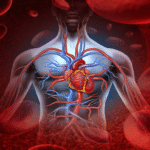Navigating the Digital Age: Empowering Parents for a Brighter Future

Empowering Parents for a Brighter Future
In an era where technology permeates every facet of our lives, parenting has taken on a new dimension. While technology offers incredible opportunities for learning and connection, it also presents unique challenges to raising well-rounded, morally grounded individuals.
The Digital Dilemma: Concerns and Considerations
Many experts express concerns about the impact of excessive screen time on children’s development. Some argue that it can lead to:
1. Moral Decay: Exposure to unfiltered content may desensitize children to violence, disrespect, and other negative behaviors.
2. Lack of Vision: Over-reliance on technology may hinder the development of critical thinking, problem-solving, and imaginative skills.
3. Social Disconnect: Excessive screen time can lead to isolation, reduced face-to-face interaction, and difficulty building meaningful relationships.
Empowering Parents: Strategies for Success
While technology is here to stay, parents can take proactive steps to ensure their children thrive in the digital age:
1. Lead by Example: Children learn by observing their parents. Model responsible technology use by setting limits for yourself and prioritizing face-to-face interactions.
2. Establish Clear Boundaries: Set clear rules for screen time, content consumption, and online behavior. Communicate these rules effectively and enforce them consistently.
3. Foster Open Communication: Create a safe space for children to discuss their online experiences, concerns, and questions. Encourage them to come to you with any issues they encounter.
4.Promote Balanced Activities: Encourage children to engage in a variety of activities, including outdoor play, hobbies, sports, and creative pursuits.
5. Educate About Online Safety: Teach children about the importance of online privacy, responsible sharing, and the potential dangers of interacting with strangers online.
6. Utilize Parental Controls: Take advantage of parental control tools to filter content, limit screen time, and monitor online activity.
7. Stay Informed: Keep up-to-date with the latest apps, trends, and online challenges. Understanding the digital landscape will help you guide your children effectively.
8. Prioritize Family Time: Make time for family activities that don’t involve screens. Engage in meaningful conversations, play games, and create lasting memories.
The Importance of Vision and Values
In addition to navigating the digital world, parents play a crucial role in instilling strong moral values and helping children develop a clear vision for their future. This involves:
1. Teaching empathy and compassion: Encourage children to consider the feelings and perspectives of others.
2. Promoting ethical decision-making: Help children understand the difference between right and wrong and make responsible choices.
3.Fostering resilience: Equip children with the skills to overcome challenges, learn from their mistakes, and persevere in the face of adversity.
4.Encouraging exploration and curiosity: Support children’s interests and passions, and encourage them to explore new ideas and experiences.
Conclusion
Parenting in the digital age requires a thoughtful and proactive approach. By setting clear boundaries, fostering open communication, and prioritizing balanced activities, empowering parents to make their children to thrive in the digital world while developing strong moral values and a clear vision for the future.





